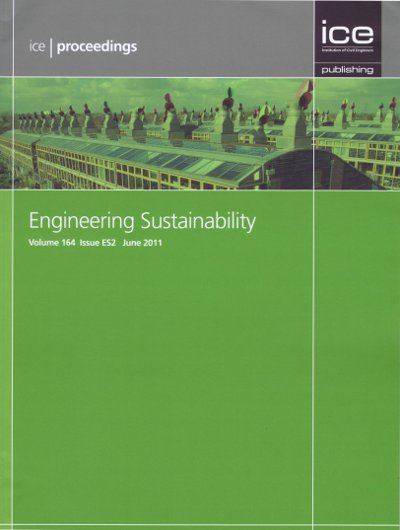 On governance for re-engineering city infrastructure. Beck M. B., Thompson M., Ney S., Gyawali D. and Jeffrey P. Published in June 2011.
On governance for re-engineering city infrastructure. Beck M. B., Thompson M., Ney S., Gyawali D. and Jeffrey P. Published in June 2011.
Given the challenge of re-engineering the infrastructure of a city so that it may become a force for good in the environment, what structure of governance might promote/stifle any associated technological and technical innovations? How might the ‘quality’ of the sought-for governance be gauged and improved? Cultural theory is introduced to address these questions and briefly elaborated. In particular, it is shown how cultural theory can be used to refurbish Dahl’s theory of pluralist democracy and provide a simple (and visual) metric of deliberative quality in governance. Matters of re-engineering the water-nutrient infrastructures of the city of Atlanta within the Chattahoochee watershed in the southeastern USA provide the primary setting for eventually applying the resulting conceptual framework. Drawing together a somewhat eclectic mix of past experience and prospective approaches — ranging from practical resolutions of water conflicts in Nepal, lessons learned from previous community engagement in the Atlanta–Chattahoochee system, and two stagings of the sustainability agora of the International Water Association — a cultural theory-inspired programme of work is developed to explore and assemble those elements of governance that should, in practice, enable the re-engineering needed for a city to become a force for good in its environment.
Complete reference: Beck M. B., Thompson M., Ney S., Gyawali D. & Jeffrey P. 2011, On governance for re-engineering city infrastructure, Proceedings (UK) Institution of Civil Engineers, J Engineering Sustainability, 164(ES2), p. 129-142.